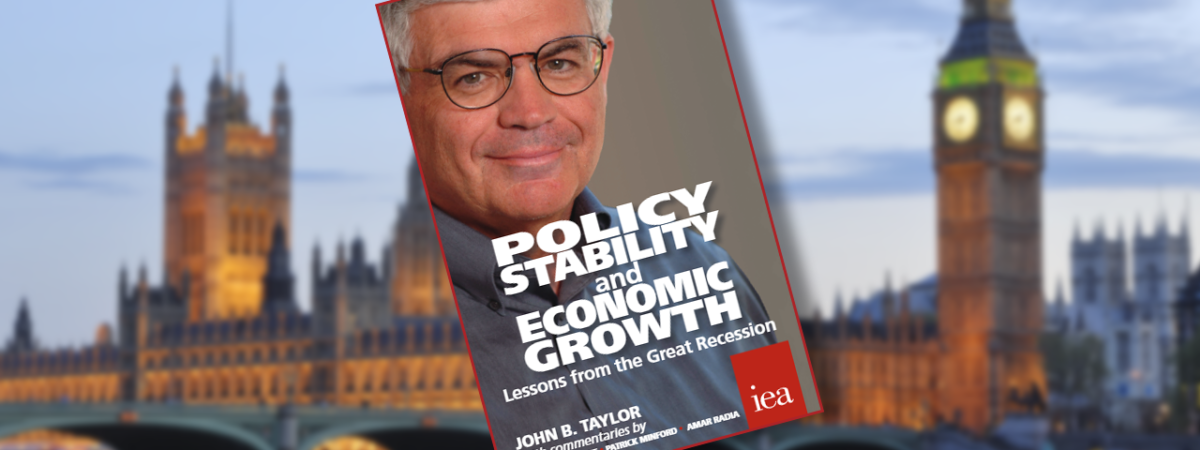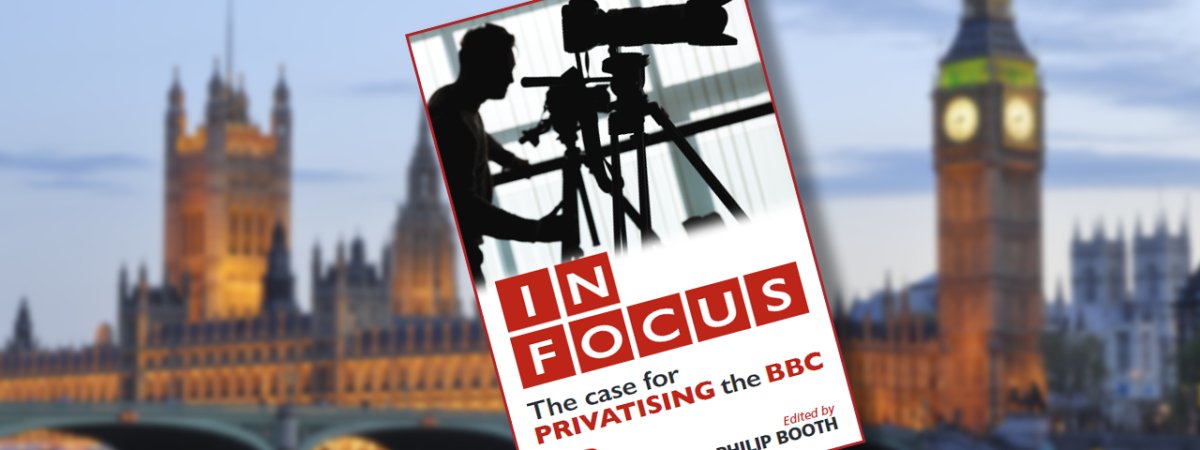Breaking Up is Hard to Do
SUGGESTED

Stable rules-based policy and nominal GDP targeting could avert another banking crisis

Bias, technological change and commercial competition necessitate reform

Britain and Europe's Dysfunctional Relationship
- UK voters face an historic choice between remaining within the EU or leaving and seeking a different type of involvement in the world economy. Such an alternative is clearly possible: the UK has many advantages in an international context as a result of its historical alliances and involvement in international institutions. This book looks in detail at the arguments about the future of our relationship with Europe. As such, it informs the debate about whether the UK should remain in the EU or should leave. Furthermore, it examines the form a reshaped EU should take if a renegotiated Union was shaped by sound principles of economics and politically economy.
- In many areas, such as defence, environmental policy and some aspects of transport, some degree of international cooperation is desirable because of public good spillovers. However, such cooperation often involves cooperation beyond the EU, and this need not be directed by Brussels. Still less do such spillovers lead to the conclusion that we need ‘ever-closer union’ in Europe.
- Reform of institutions such as the European Parliament, the European Commission and the European Court of Justice is arguably more important than specific areas of policy – and is likely to find greater support from our European neighbours.
- Renegotiation is an extremely difficult process, which could conceivably be more effective from outside the EU: if the UK signalled its intention to leave, negotiations could focus on the positive aspects of coorperation rather than the negative aspects of integration.
- Free trade is the ideal, but the European Union prevents the UK from opening up trade with other parts of the world. This probably costs us around 4 per cent of GDP as a result of trade diversion and distortions to the UK economy. The EU needs to be much more open to trade and reduce its tariff and non-tariff barriers, which remain far too high.
- Despite recent concerns, the free movement of labour within Europe is a positive feature of the EU, and we should be careful in renegotiation not to damage the principle that Europeans should be able to live and work in other countries. Similar principles apply in areas such as agriculture, employment regulation and lifestyle prohibitions. Many UK politicians are at least as opposed to liberal principles as EU regulators, and we need to ensure that any repatriation of government powers leads to a genuine shift to market liberalism.
- In banking and financial regulation, the EU has shown very damaging centralising tendencies, exacerbated by the financial crisis. Banking structures should be simpler, banks should be allowed to fail, but there should be overnight resolvability and an enhanced ‘lender of last resort’ function. The EU emphasis on enhanced capital and supervisory regulation is wrong. In the field of other financial services, such as insurance, the EU needs to move back towards mutual recognition rather than impose common rules.
- The Common Agricultural Policy is expensive, holds back innovation, raises prices to consumers and serves special interests; the Common Fisheries Policy has had an adverse impact on the UK and has a very poor record with regard to the conservation of fish stocks. Significant reform in both these areas is unlikely, but some degree of repatriation of policy could prove beneficial.
- The role of supranational institutions (which need not be in the EU) in transport policy should be confined to some aspects of emissions, air traffic control and cross-border travel. Some EU interventions, such as the open-access rules on railways, go beyond what is necessary to allow the integration of services across borders. The EU should not be imposing an inappropriate structure on the railway industry; rather, it should let the market determine its shape.
- In climate policy, the EU has been attempting the impossible: setting its own targets on the assumption that an effective global policy will emerge. Its emissions targets are unrealistic, the Emissions Trading System has been ineffective and subject to fraud, and its emphasis on renewable energy has been expensive and ineffective. Perhaps a better focus for its efforts might be supporting fundamental research into new technologies, though this might equally be conducted at the national level.
To read the press release for ‘Young, Single but not free – the EU market for financial services’ chapter, click here.
To read the press release for ‘Freedom of Movement’ chapter, click here.
This paper featured in the Daily Mirror.
Download Chapter 1: Introduction
Download Chapter 2: Assigning Responsibilities in a Federal System
Download Chapter 3: Institutions for European Cooperation
Download Chapter 4: Beyond the Ghosts: Does EU membership nourish or consume Britain’s interests and global influence
Download Chapter 5: Transforming the UK’s Relationship with the EU
Download Chapter 6: Freedom of Movement
Download Chapter 7: Evaluating EU trading arrangements
Download Chapter 8: UK Employment Regulation IN or OUT of the European Union
Download Chapter 9: Prospects for a Reformed Agricultural Policy
Download Chapter 10: Freedom for Fisheries
Download Chapter 11: Stuck in Brussels: Should transport policy be determined at EU level
Download Chapter 12: Bank Regulation: Starting over
Download Chapter 13: Young, Single, but Not Free: The EU market for financial services
Download Chapter 14: Better Energy and Climate Policy
2016, Hobart Paperback 181

.jpg)


